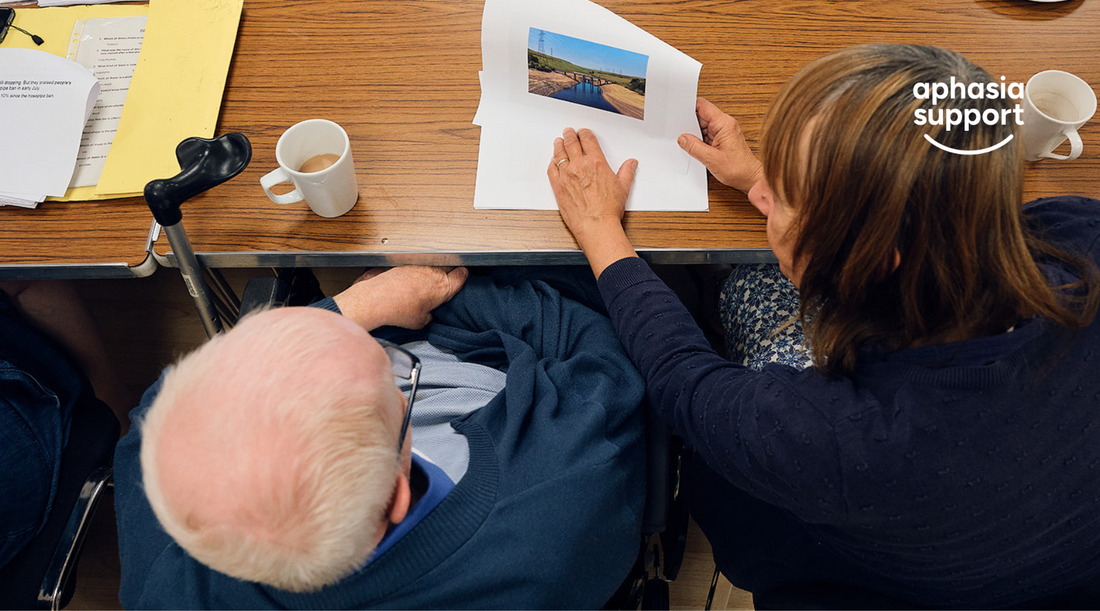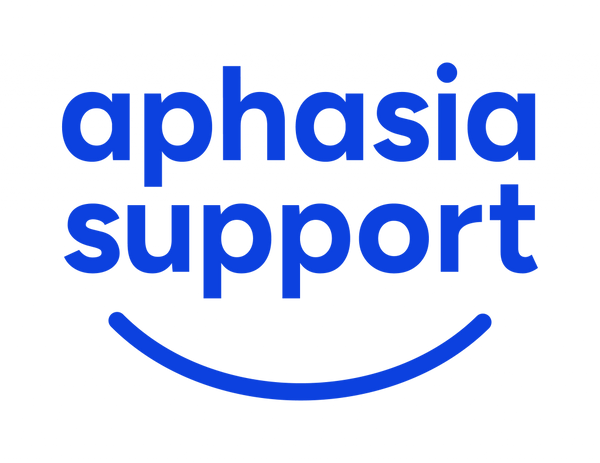Meet Marion: Giving back after retirement

At Aphasia Support, our volunteers are at the heart of the work we do - offering encouragement, companionship, and practical support to those navigating life with Aphasia.
In this post, we meet Marion, a retired primary school teacher whose desire to stay connected and make a difference led her to volunteer with Aphasia Support. With no formal background in speech and language therapy, Marion brings empathy, patience, and a deep understanding of how powerful simple communication can be. Marion’s experience reflects on the impact of thoughtful, consistent support.
Q&A with Marion
 What inspired you to start volunteering with Aphasia Support?
What inspired you to start volunteering with Aphasia Support?
After several years as a Citizens Advice volunteer, when the local office closed, I felt I needed to some other useful channel for my availability, being a long retired primary school teacher. I soon heard about Aphasia Support.
Did you have any previous experience in Speech and Language Therapy?
I had no background in Speech and Language Therapy but, as a retired teacher, I do have experience of helping young children with general speech problems.
I joined as a volunteer to help provide 1:1 support to adults with Aphasia in the comfort of their own home, or care home. Before I was matched with a client, I received full training from Aphasia Support, and learnt so much from their team of Speech and Language Therapists. Now that I'm supporting my clients, I have the comfort of knowing professional therapists are always on hand to offer any advice and guidance needed.
What have you learnt about Aphasia that you would like to share with others?
My contemporaries often can't recall a name and sigh about “senior moments”, but an important thought dawned on me after a couple of sessions after supporting someone with Aphasia. Their problem is not with memory or with forming ideas, but with producing the sound linked to their thoughts. Sometimes, even after great effort, the wrong sound comes out, or sometimes... nothing. Help is needed to make the word travel from brain to lips. I suddenly understood the huge frustration this struggle often causes.
Can you share some moving or memorable moments you've experienced during your time as a volunteer?
One day, sitting in a spacious and pleasant room with TV, bookcases and a place to make tea and coffee, my client was working hard at the computer exercises but suddenly stopped. He nervously glanced across the room where two fellow residents had come to get a cup of tea. He would not continue until they left. He didn't want to be in their hearing. My heart sank, that a brave and funny man would feel embarrassed about his struggles.
Another client has told me that he is often told to “go away” when he finds it difficult to make himself understood, and this understandably makes him angry and sad.
I hope that my routine of visiting my clients to help with exercises on an iPad and provide opportunity for conversation once a fortnight, contributes a little to their recovery or just makes their lives a little less of a struggle.

